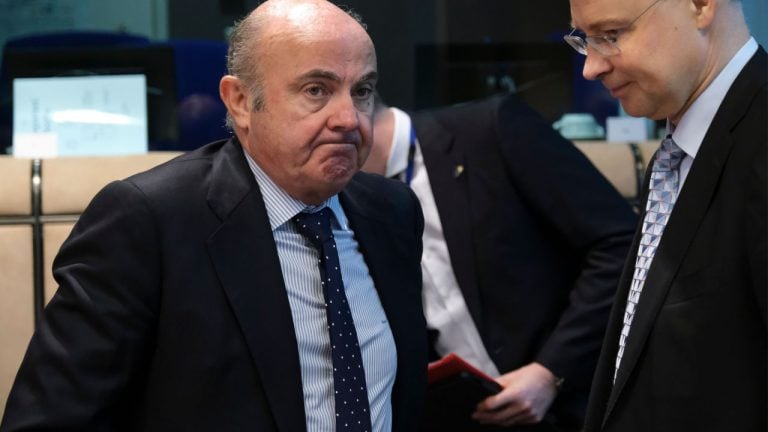
Interest rates will continue to rise while the euro area falls into recession, a high-ranking executive at the European Central Bank (ECB) has indicated. His statements follow the latest rate increase announced by the monetary authority last week and revised projections showing higher than previously expected inflation in Europe ahead.
‘We Have No Choice But to Raise Interest Rates,’ ECB’s Luis de Guindos Admits
Recognizing that the eurozone is entering recession, ECB Vice President Luis de Guindos has nonetheless insisted that the regulator should continue to raise interest rates in order to keep inflation under control. With the indicator likely to remain well above the price stability target, inflation of 2% over the medium term, the top executive told Le Monde “We have no choice but to act.”
On Thursday, Dec. 15, the ECB raised the deposit facility rate by 50 basis points to 2%. In the interview conducted the same day but published by the French daily and the bank on Dec. 22, de Guindos acknowledged that the European economy is “perhaps in negative territory” during the fourth quarter of 2022. With GDP expected to contract by 0.2%, he elaborated:
The lead indicators we have are not good. Our projections therefore expect the euro area to fall into a mild recession in the last quarter of this year and in the first quarter of 2023, when GDP is expected to contract by 0.1%.
While growth projections published in December are similar to the estimates from September, those regarding inflation have changed substantially, pointed out the former economy minister of Spain. Expectations for inflation have been revised upward significantly, from 5.5% to 6.3% for 2023 and from 2.3% to 3.4% for 2024, de Guindos detailed.
During a press conference after the last week’s rate hike, ECB President Christine Lagarde announced that there will be several further increases next year. Asked if that would make some governments unhappy, her deputy emphasized that inflation is currently the main problem for countries across Europe.
While admitting that raising interest rates will increase funding costs for European governments, Luis de Guindos insisted the ECB has to stick to its mandate. With inflation currently at 10%, the banker is convinced that “We have no choice … Because if we don’t control inflation, if we do not put inflation on a convergence trajectory towards 2%, it will be impossible for the economy to rebound.”
His comments come after the U.S. Federal Reserve raised the federal funds rate by 50 basis points in mid-December. The 0.5 percentage point increase followed four consecutive rate hikes of 75 basis points.
Do you think the ECB will be able to slow down inflation in the eurozone? Share your expectations in the comments section below.
from Bitcoin News https://ift.tt/8CAlVQY
Comments
Post a Comment